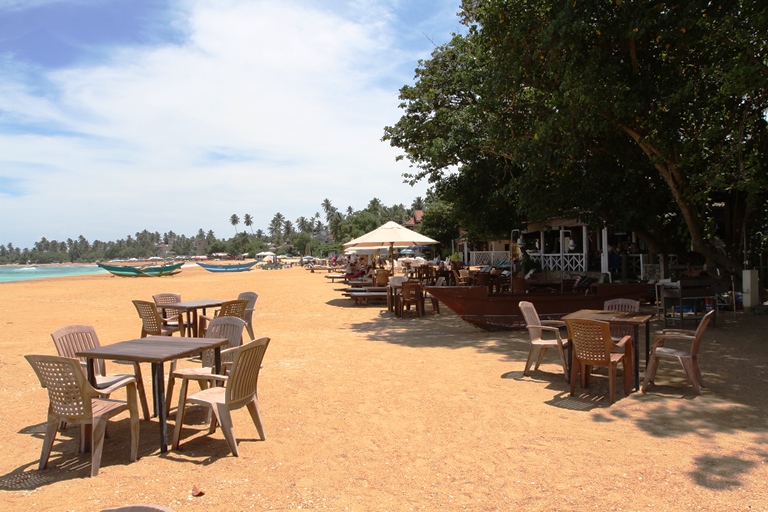The Unawatuna Beach, named the World’s Best Beach in 2004, is fast disappearing today. The once flawless crescent of sand that swept along a palm-lined shore with turquoise waters, is now blanketed with jagged rocks.
www.news.lk team visited this world famous beach to give a first hand account of the destruction of Unawatuna. The Unawatuna beach is a stretch of coastline that spans nearly 1 1/2 kilometres in the South of Sri Lanka, and has attracted both the local and foreign tourists for over half a century.
The coral reefs of Unawatuna helped create a waveless natural pool that made it a haven for swimming and scuba diving. But today, this once pristine beach is receding at a rapid pace.
Unawatuna owing to its natural splendour and rich biodiversity had been a pleasing retreat to thousands of visitors throughout the year.
The reason for the destruction of the Unawatuna Beach is the breakwater that was built by former Government. The breakwater, which stretches nearly a kilometre into the ocean has disturbed the natural balance of the eco-system, and is washing away the sand from one half of the beach, and depositing it on the other half.
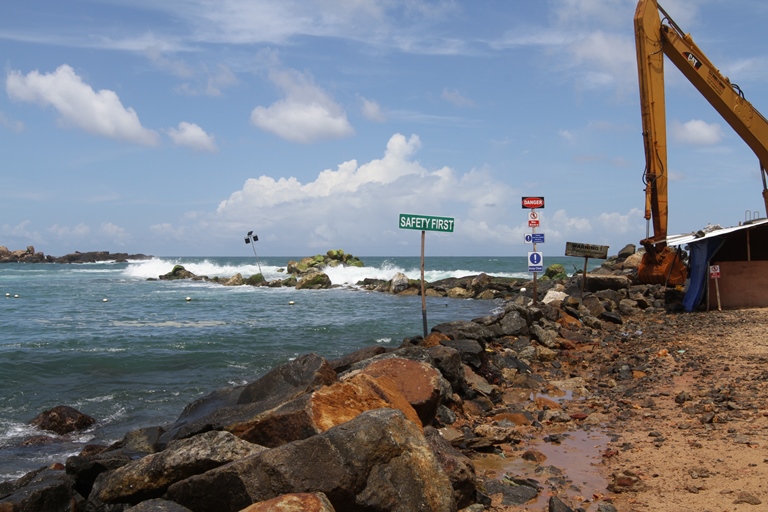
 Tourism entrepreneurs highly hit by this unexpected and unwarranted disaster and who have lost their livelihood, allege that the current catastrophic sea erosion was due to the recently constructed breakwater on the western bank of the bay to stop sea erosion, by the Coast Conservation Department. They also charge that the new breakwater though erected to stop sea erosion has intensified the beach attrition as it operated as a barrier for the natural activation of sea currents and waves over the bay which continue as the typical process of formation of the sandy beach.
Tourism entrepreneurs highly hit by this unexpected and unwarranted disaster and who have lost their livelihood, allege that the current catastrophic sea erosion was due to the recently constructed breakwater on the western bank of the bay to stop sea erosion, by the Coast Conservation Department. They also charge that the new breakwater though erected to stop sea erosion has intensified the beach attrition as it operated as a barrier for the natural activation of sea currents and waves over the bay which continue as the typical process of formation of the sandy beach.
The convener of the Organization for the Protection and Conservation of Unawatuna Beach and Tourism, Rupasena Koswatte, told www.news.lk that the new breakwater was not the authentic solution for the grave problem of erosion, but instead, it had aggravated the dilemma.
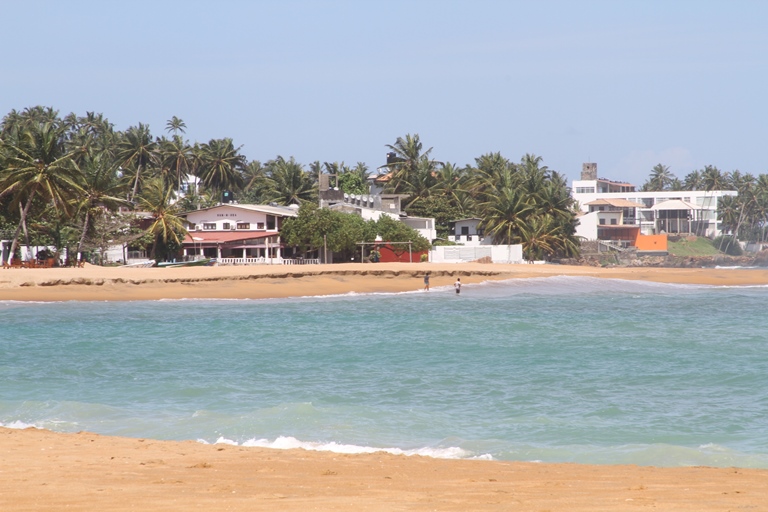
To prevent the erosion that is currently taking place, large rocks have been piled along the shore, and this has become a nuisance for tourists. The plea of the locals of Unawatuna is that the Breakwater be destroyed.
Even though the authorities acquiesced to their plea, it is only the top layer of the Breakwater that has been removed thus far.The livelihoods of the locals too have been gravely affected because a wide network of hotels, restaurants and other businesses depend on the tourists arriving at the Unawatuna beach for their survival.
The aim of the Coast Conservation Department is to create an artificial beach, while preserving the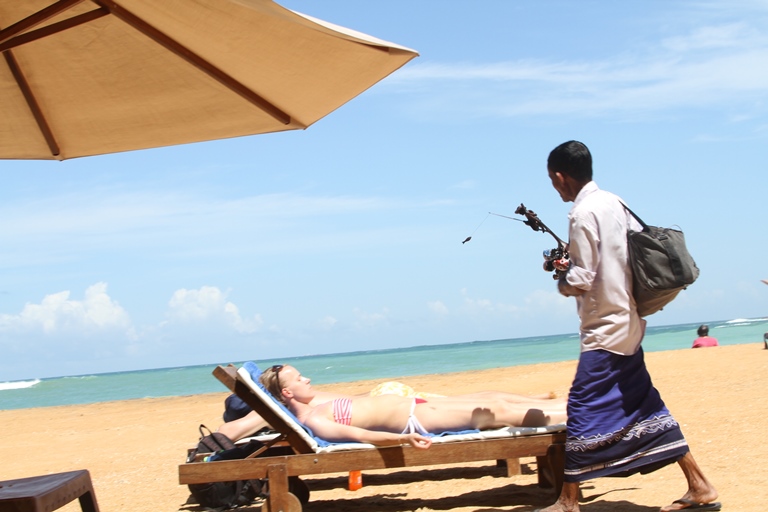
But due to the difficulties that have arisen as a result of the Beach Nourishment process, tourists are being driven away.Who will decide the fate of this iconic location? Could Unawatuna enter the record books as the World’s Best Beach once again?
It is questionable why the authorities cannot understand the gravity of securing this natural treasure which should be cherished by the nation. If we ignore the damage being done to Unawatuna Bay, it is at our peril!.
What we demand is to remove the unscientific construction of the breakwater and let the typical process of beach formation to trigger once again naturally.
- Sureshika Samindi Thilakarathna -

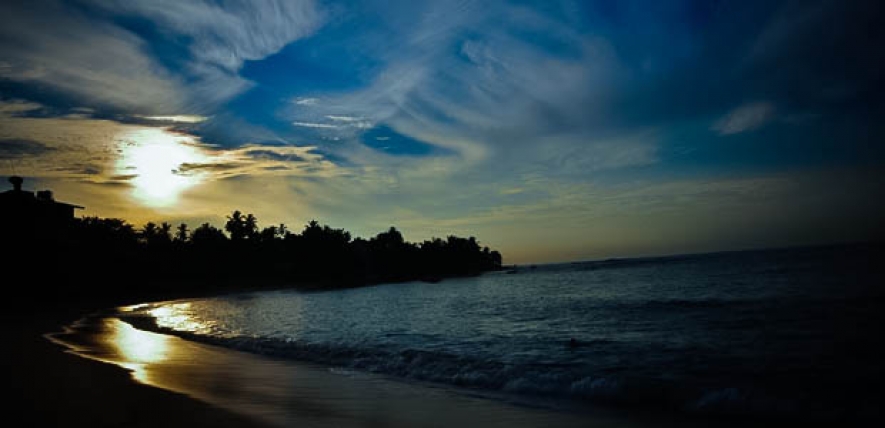
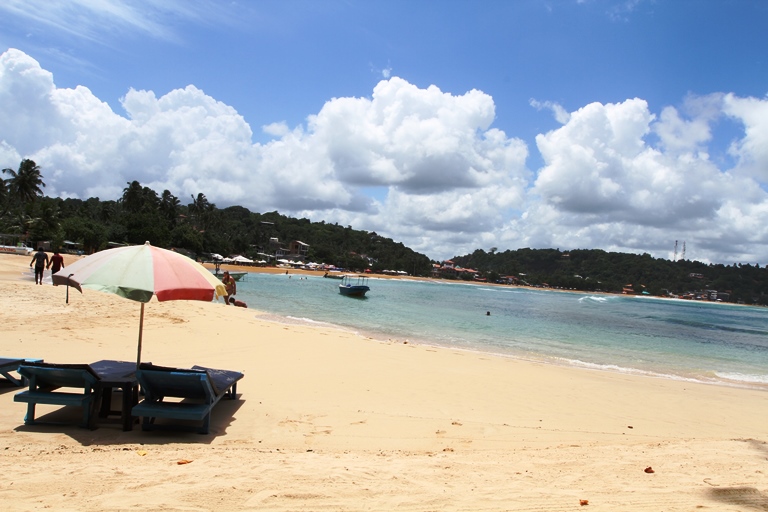 Indian Ocean to make it ideal for safe swimming, snorkeling, scuba diving and even for you to learn surfing. The reef shelters more species of fish than the Great Barrier Reef. It is said by many industry experts to be among the top ten beaches of the world. The reef off the far end of the beach, 150m offshore can be reached from shore and you can even venture into the main waters of the Indian Ocean by traditional twin log like fishing catamaran made solely of timber.
Indian Ocean to make it ideal for safe swimming, snorkeling, scuba diving and even for you to learn surfing. The reef shelters more species of fish than the Great Barrier Reef. It is said by many industry experts to be among the top ten beaches of the world. The reef off the far end of the beach, 150m offshore can be reached from shore and you can even venture into the main waters of the Indian Ocean by traditional twin log like fishing catamaran made solely of timber.